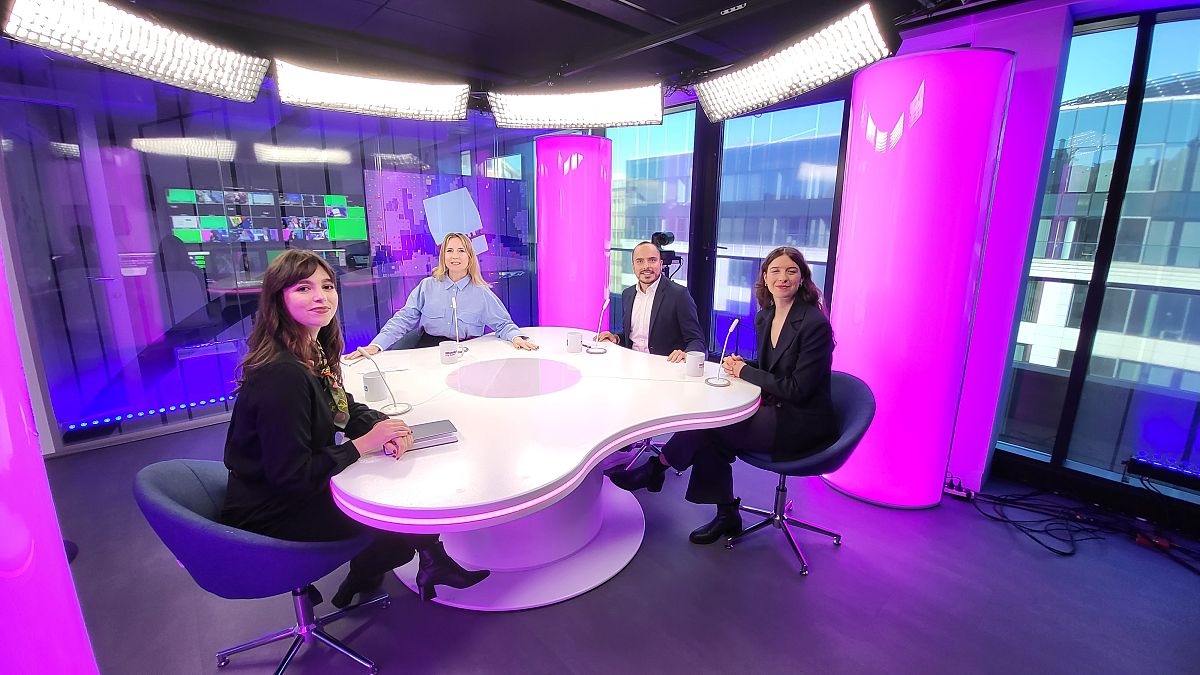In a recent edition, the focus was on Italy’s Albanian model for processing asylum seekers and the victory plan of Ukraine’s President Zelenskyy in Brussels. Panelists including Liza Bezvershenko from Promote Ukraine, Helena Hahn from the European Policy Centre, and Vassilis Ntousas from the German Marshall Fund discussed the concept of return hubs. These hubs would involve the EU outsourcing parts of its migration policy to countries outside the bloc, a key outcome of a European summit held in Brussels. European Commission President Ursula von der Leyen has acknowledged that while the topic is not trivial, it is being actively discussed. However, there is concern among panelists such as Helena Hahn that there is more political noise than real answers to the issue.
The concept of return hubs is a controversial one, as it would involve outsourcing the processing of asylum seekers whose applications have been rejected and who are not entitled to stay in the EU. This proposal has raised questions about how such a system would be implemented and how the rights of asylum seekers would be protected. The discussion highlights the challenges of finding effective solutions to the ongoing migration crisis facing Europe. As the debate continues, it is clear that there is no easy answer to the complex issues surrounding migration and asylum.
The Italian Albanian model for processing asylum seekers has been cited as a potential solution to the challenges faced by countries in dealing with large numbers of migrants. This model involves cooperation between Italy and Albania to facilitate the return of rejected asylum seekers to Albania, where their cases can be reviewed. While this approach has shown some success, it is not without its challenges, including questions about the rights of asylum seekers and the long-term sustainability of such arrangements.
President Zelenskyy’s victory plan in Brussels has also been a topic of discussion, with panelists analyzing the implications of his visit and the outcome of the talks. Zelenskyy’s victory in the Ukrainian presidential elections was seen as a positive development for Ukraine’s relationship with the EU, and his visit to Brussels was seen as an opportunity to strengthen ties between the two entities. However, there are concerns about the challenges that lie ahead for Ukraine, including ongoing conflict in the eastern part of the country and the need for economic reforms.
The panelists emphasized the need for a comprehensive and coordinated approach to address the migration crisis in Europe. This includes working with countries outside the EU to ensure effective processing of asylum seekers and the protection of their rights. The discussions also highlighted the importance of political leadership and cooperation in finding sustainable solutions to the complex challenges facing Europe. As the debate on migration policy continues, it is clear that there are no easy answers, but that continued dialogue and cooperation are essential in finding a way forward.
Overall, the discussions on Italy’s Albanian model for processing asylum seekers and President Zelenskyy’s victory plan in Brussels shed light on the complex issues surrounding migration and asylum in Europe. While there are no easy answers, it is clear that collaboration and cooperation are key to finding sustainable solutions to these challenges. As the EU continues to grapple with the migration crisis, it is important to engage in open and honest dialogue to address the needs of asylum seekers and ensure that their rights are protected.










